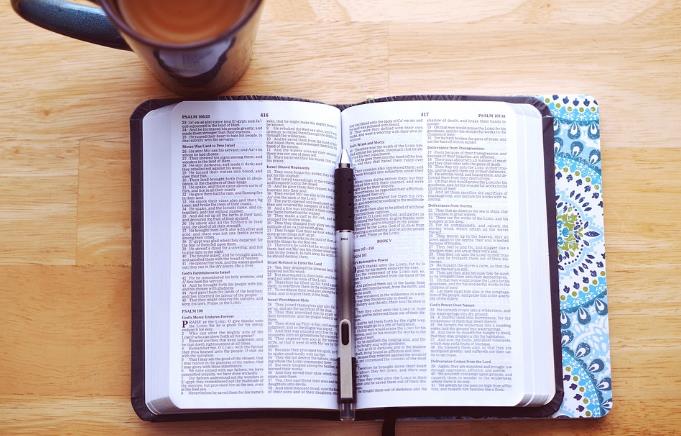both和 each other区别? 一、含义不一样: each other:(两个或两个以上的人或物中)各自,各个,每个。 both(与复数名词连用)两个,两个都;不仅…而且,…; …和…都。 二、用法不一样: Each用法...
面试

一、含义不一样:
each other:(两个或两个以上的人或物中)各自,各个,每个。
both(与复数名词连用)两个,两个都;不仅…而且,…; …和…都。
二、用法不一样:
Each用法:
1、each other作“各自的”,“每个的”解,作形容词用:
1)、There are many trees on each side of the river。河流两岸不少树。
2)、Each element has some special properties。每种元素都拥有些特殊性质。
2、作“各自”、“每个”讲,作代词用:
1)、Each has his advantages。各人都拥有其优点。
3、作“各自地”讲,作副词用:
1)、The students have ten books each。(=Each of the students has ten books。)这些学生每人有十本书。
2)、Different kinds of waves have each the same three characteristics: amplitude, frequency and length。不一样的波(各)都拥有三个一样的特性:幅度、频率和波长。
4、注意each作同位语的用法:
1)、The workers are each of them hard-working。这些工人个个勤奋劳动。
5、each other作“相互”、“彼此”解:
1)、We help each other。我们相互帮。
2)、We often compare notes with each other on our work and study。我们常常就工作和学习方面相互交换意见。
both强调整体,意为两者都,作主语谓语动词用复数,each other强调相互,谓语动词单数。
Both 是两者都的意思,eachother 是代词 彼此相互
一、含义不一样:
each of:(两个或两个以上的人或物中)各自,各个,每个。
both of (与复数名词连用)两个,两个都;不仅…而且,…; …和…都。
二、用法不一样:
Each of用法:
1、each of作“各自的”,“每个的”解,作形容词用:
1)、There are many trees on each of side of the river。河流两岸不少树。
2)、Each of element has some special properties。每种元素都拥有些特殊性质。
2、作“各自”、“每个”讲,作代词用:
1)、Each has his advantages。各人都拥有其优点。
3、作“各自地”讲,作副词用:
1)、The students have ten books each。(=Each of the students has ten books。)这些学生每人有十本书。
2)、Different kinds of waves have each the same three characteristics: amplitude, frequency and length。不一样的波(各)都拥有三个一样的特性:幅度、频率和波长。
4、注意each作同位语的用法:
1)、The workers are each of them hard-working。这些工人个个勤奋劳动。
5、each other作“相互”、“彼此”解:
1)、We help each other。我们相互帮。
2)、We often compare notes with each other on our work and study。我们常常就工作和学习方面相互交换意见。
6、each和every词义辨异:
1)、every只可以作形容词,唯有在与名词连用或构成复合词(如everybody每个人)时,才可以作主语或宾语等,而each还可以作代词,直接作主语或宾语(见本篇文章二各例句)。
2)、every虽指每个,而概括我们全体,而each只是指“每个”,却以“各……”为主。比如:
(1)、I know every member of the class。全班的人我都认识。(着重我们全体,即虽指每个,而概括我们全体。)
(2)、I know each member of the class。这个班每个人我都认识。(“很小一部分”意义较重。)
both用法:
是说两者都怎么样是指两者的, both的用法有两种,可以和名词、代词连用,也可和动词连用,在句中作主语、宾语及同位语,也可以作定语。
both of当形容词时,有 both of the boys=both boys =both the boys(两个男孩都...),接代词时是 both of us=we both(我们都...),当both做副词时,放在Be动词,助动词,情态动词以前,行为动词以前,例如说 We both like English。We can both sing。
此外both 也构成短语both...and...(两者都...)。例如Both Tom and Tina like English。(Tom和Tina都喜欢英语),要记住这里的“like”一定要用复数形式。
each of 每一个,单数,可以指两个或两个以上的事物中的每一个.
both of 两者都,复数,只可以指两个,数量不可以多也不可以少.
both:两个都(用于肯定) 例子:both the students are girls. (这两个学生是女生。) each:每个(表个体) 例子:each student has a pen. (每个学生有一枝笔。)
它们的区别在于:(1)both指两者都是对两者的肯定,修饰复数名词,例如Both his father and mother are here. 他们的父母都在这儿;(2)either表示两者中任何一个,可以指代或修饰单数名词,做主语时,谓语动词用单数,如Either book is OK. teacheray.com 两本书都可以;(3)neither表示两者都不是对两者的否定,如Neither answer is right. 两个答案都不对。
both, either, neither属于不定代词,它们的适用范围都是限于两者当中。后面两个谓语形式大多数情况下来说用单数!但是在口语中有的时候,候也会用复数形式!各位考生按实质上情况采取!
both,each,neither,either的区别:
both:两个都(用于肯定);each:每个(表个体);neither:两个都不(用于否定);either:1或者(用于选择)常与or 连用;也(表一样)(用于否定)。
例句:
1.Both the students are girls.
2.Each student has a pen.
3.Neither the student is from London.
4.He doesn't have a pen,she doesn't have,either.
不可以。
his 属人称代词,the 属定冠词。人称代词与冠词不可以修饰同一名词。
英语中名词的产生总是伴随着冠词或者所属格等,例如a/an, the, this, that, these, those, his/her/its/their等,但是,这些词只可以同时产生一个,例如the bag 这个包,his bag 他的包,不可以是the his bag or his the bag,因为重复指定没有意义。
中文里面可能有这样的表达:他的这个包,英语则没有这样的表达。
His属于物主代词,the属于定冠词,他们都可以用在名词的前面,对名词起修饰和限制作用,但他们不可以同时使用,只可以使用这当中之一。比如:his pencil the pencil
可以同时产生,比如:
1.Her father had set his face against the marriage.她的父亲坚决反对这门亲事。
1.His proposal that the system should be changed was rejected.他提的有关更改制度的建议被拒绝了。
不可以,定冠词the和物主代词不可以并列,要么保留the,要么保留his,二者只可以取这当中一个。
当序数词前有形容词性物主代词或名词全部格修饰时,序数词前不需要the
如:
Mother was my first teacher in my life. 妈妈是我人生的第一个老师
LiuTao is his third son. 刘涛是他的第三个儿子
英语的不定代词有all, each, both, either, neither, one, none, little, few, many, much, other, another, some, any, no, few, little, both, enough, every等,还有由some,any,no和every构成的合成代词(即somebody, anyone, nothing等)。在这些不定代词中,多数都可以作主语、宾语、表语或定语,但是,代词none还有由some, any, no和every构成的合成代词只可以作主语、宾语或表语,不可以作定语,而no和every则只用作定语。
不定代词用法对比:
1、so little与such little的区别:
用so little还是such little主要还是看little的意思:若表示数量方面的“少”,则用so little;若表示形状体积的“小”,则用such little:
如:He has so little time for reading. 他读书时间少得可怜。
Ive never seen such little boxes. 我从来没有见过那样小的盒子。
2、some与any的用法区别:
大多数情况下说来,some用于肯定句中,any用于否定句和疑问句中。但是在表示请求、邀请或征求意见的句子中,一般要用some而不需要any:
如:Would you like some cake? 吃点蛋糕吗?
Why not buy some bread? 何不买些面包呢?
Shall I get some chalk for you? 要我帮你拿些粉笔来吗?
注:any有的时候,也用于肯定句中,这个时候表示“任何”:
如:Any colour will do. 任何颜色都行。
Come any day you like. 随便什么时候来都可以。
3、many与much的用法区别:
两者都表示“不少”,但many修饰或代替可数名词(复数),与few(少数)相对;
而much用来修饰或代替不可数名词(单数),与little(少量)相对。在口语中两者主要用于非肯定句中:
如:Did you see many people there? 你在那儿看见不少人了吗?
We dont have much time. 我们没有不少时间。
在肯定句中,大多数情况下用a lot of, lots of, plenty of 等代之。但是在正式文体中有的时候,也用于肯定句中;
此外若用作主语或主语的定语,或其前有how, too, as, so, a good, a great等修饰,也可以用于肯定句中:
如:Many of us left early. 我们有不少人离开得很早。
Much work has been done. 不少工作都已经做了。
Youve given me too much. 你已给我太多了。
Take as many(much) as you want. 你要多少拿多少。
I asked her a great many questions. 我问了她不少问题。
4、few, a few与little, a little的用法区别:
(1)few和a few后接可数名词的复数形式。few表示数量很少或基本上没有,强调“少”,含有否定意义;
a few表示数量虽然少但毕竟还有,强调“有”,含有肯定意义:
如:It is very difficult, and few people understand it. 它超级难,没有哪些人能懂。
It is very difficult, but a few people understand it. 他虽难,但是,有部分人懂。
(2)little和alittle后面接不可数名词,其区别跟few和a few当中的区别相似:
如:Unfortunately, I had little money on me. 很不巧,我身上没带什么钱。
Fortunately, I had a little money on me. 幸好我身上带着一点钱。
5、other, the other, another与others的用法区别:
这些不定代词不仅仅是含义上有单复数之分,而且,在用法上有泛指(无the)和特指(有the)之别。其用法区别可归纳请看下方具体内容:
(1)指单数时,若泛指用another,若特指用the other:
如:Give me another(one). 另外给我一个。
Shut the other eye, please. 请把另一只眼睛也闭上。
(2)指复数时,若泛指用other(后接复数名词),若特指用the other(后接复数名词):
如:There are other ways of doing it. 做这事还有其他的办法。
Where have the other students gone? 其他学生都到哪里去了?
(3)others永远表示复数意义(且其后不可以再接名词)。其用法总体基本上等同于“other+复数名词”,同样地the others总体基本上等同于“the other+复数名词”:
如:Other people[Others] may not think that way. 别的人可能不这样想。
He is cleverer than the others[the other students] in her class. 他比班上其他学生聪明。
(4)another大多数情况下只可以表单数,且其后接名词也只可以接单数名词。但是,若其后有数词或few修饰时,则也可以接复数名词:
如:We need another few chairs. 我们还要有几把椅子。
In another two weeks itll be finished. 再过两个星期就可做完了。
(5)与some对比使耗费时长,用others(这个时候与some同义):
如:Some say yes, and others say no. 有人说对,有人说不对。
©下载资源版权归作者所有;本站所有资源均来源于网络,仅供学习使用,请支持正版!


以上就是本文both和eachother区别,each of与both of的区别的全部内容
本文链接:https://bbs.china-share.com/news/43606.html
发布于:博宇考试网(https://bbs.china-share.com/)>>> 面试栏目(https://bbs.china-share.com/gongkaobianzhi/mianshi/)
投稿人:网友投稿
说明:因政策和内容的变化,上文内容可供参考,最终以官方公告内容为准!
声明:该文观点仅代表作者本人,博宇考试网系信息发布平台,仅提供信息存储空间服务。对内容有建议或侵权投诉请联系邮箱:ffsad111@foxmail.com
关注本站了解更多关于文both和eachother区别,each of与both of的区别和面试的相关信息。
面试
both和 each other区别? 一、含义不一样: each other:(两个或两个以上的人或物中)各自,各个,每个。 both(与复数名词连用)两个,两个都;不仅…而且,…; …和…都。 二、用法不一样: Each用法...
面试
23年教资面试报名结束时间? 往年下半年教师资格证面试报名时间12月9日起,报名截止日期各地明显不同,往年下半年教师资格证面试报名截止日期详细请看下方具体内容: 往年下半年教师...
面试
面试讲课。美术方面的。讲课10到15分钟。怎么讲才可以吸引人? 1、熟悉和了解美术的表现形式,认识美术与生活的密切关系,培养新的思维加深对美术的新认识。 2、观察和发现各自不同的工...
面试
江西往年教师编考试时间面试? 1、往年江西教师招聘笔试考试时间4月10日。 2、往年江西教师招聘成绩发布时间5月18日左右。 3、按照公告信息中“原则上在笔试考试成绩发布后一个月内完成”面...
面试
特岗服务期内可以考研吗? 可以,因为服务期内考研虽然单位不会同意,可以以社会青年方法考研,假设考取,就辞职;假设要经过单位同意才考研,那服务期内肯定不可以报考。 特岗教师三...